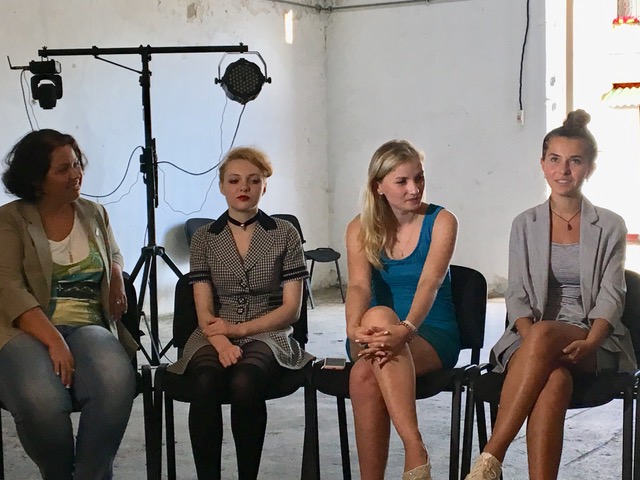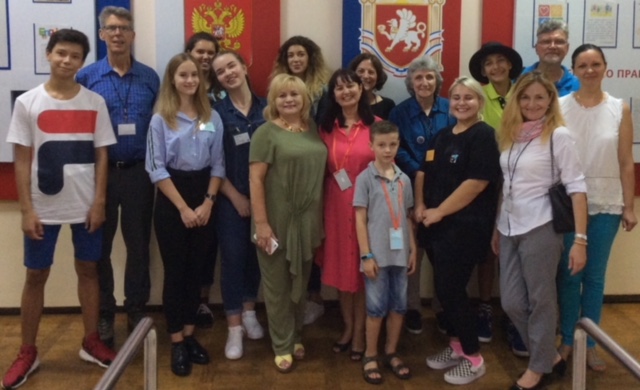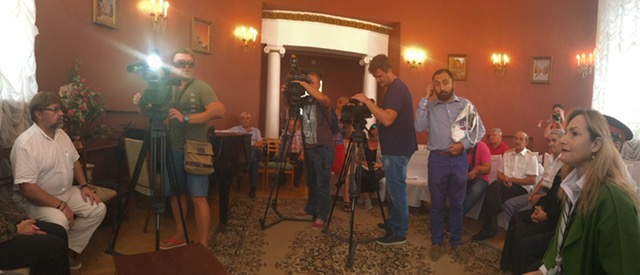Another foto-journal from Mike Metz, a member of CCI’s current AMMR delegation.

Sharon Tennison
Center for Citizen Initiatives
At the university in Sevastopol, we visited with students of English, pictured below, smart young kids planning careers as interpreters, their rightly proud professor on the left. These young people look, act and sound like U.S. college students, with similar hopes for the future, views on women’s rights, and how gay people should be treated.

We also spent several hours at “the best school in Crimea,” according to Tatiana, our interpreter, who would know as she was a student there not long ago. These kids also speak excellent English, with hopes for careers in technology, business, and international relations. The guy wearing my hat wants to work at Apple or Google someday, and is working on his coding.

Sevastopol is Russia’s only warm water naval port, thus important to the defense of the country. It’s a military city, not unlike San Diego, and Leo Tolstoy was an officer here in the Crimean War. Today, the house where Tolstoy stayed is a city library, where we found ourselves in yet one more press conference.

This time was less friendly. With great emotion, reporters and citizens pleaded (some demanded) that we tell our government to stop the sanctions imposed on them.
Their story: a U.S.-sponsored coup in Ukraine overthrew a democratically elected president and installed a rightist government of which Crimea wanted no part. Instead, they seceded, requested to rejoin Russia (as in the past), and were accepted.
As you’d expect, the U.S. government version is different: Ukraine had a revolution, not a coup, and it was a good thing, eliminating a corrupt Russia-leaning president. Putin didn’t like that, in retaliation invaded Crimea and stole it away from Ukraine.
It’s complicated, but not overly. Most Crimeans are Russian, speak Russian at home, and seem quite pleased, even proud with how things turned out. Except for those sanctions.
Sanctions are a nasty tactic. They sound abstract and technical, but they are a form of warfare. They’re an invisible, insidious weapon that affects everyone in the society (including the youths pictured above) and mostly those at the bottom, and they have a cumulative effect over time. We’ve had sanctions on Cuba for 50 years, crippling the country economically.
The damnedest thing is that in the U.S. government version, Crimea was invaded, yet we then slapped sanctions on the Crimeans. That’ll teach ‘em not to get invaded.
Mike Metz
Citizen Diplomat
September 2018
